Monographs
Vote with a Bullet: Assassination in American Fiction. Camden House, 2021.
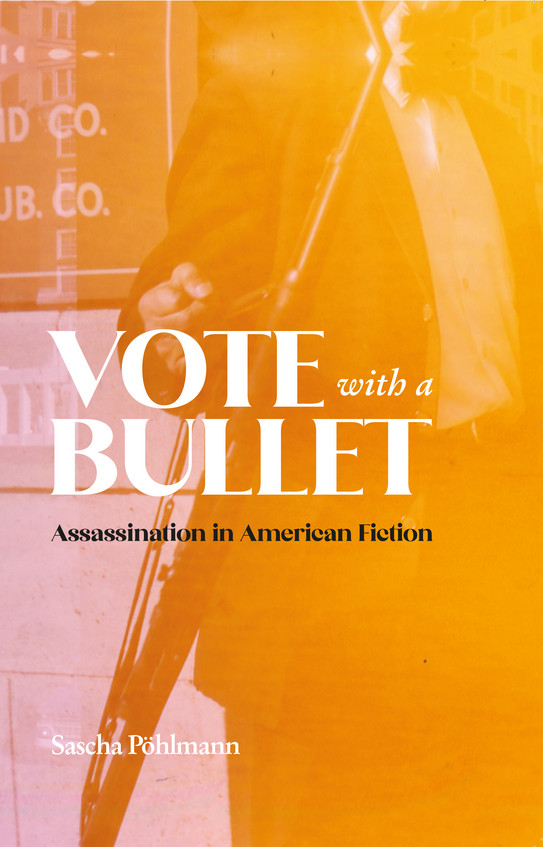
Vote with a Bullet is the first systematic study of assassination in American fiction. It proffers not only a fundamental overview of the genre but also an argument about its larger cultural, aesthetic, and political significance in the present moment as well as in the respective historical contexts of the works themselves.
The study argues that American assassination fiction is a symbolic condensation of the larger conflict between individual and society that is at the heart of modern democracy, and that has been especially contested in the democratic culture of the US. Starting with Henry James's The Princess Casamassima (1886) and ending with Noah Hawley's The Good Father (2012), the chapters analyze twelve works ranging from canonical classics to popular genre fiction. A conclusion considers Thomas Pynchon's Against the Day (2006). The book describes the loose continuum of assassination fiction as an imaginary laboratory in which fantasies of individual empowerment and social unity play out in different ways, negotiating the tension between individualism and mass society in a democracy that is based on the former but must restrict it to preserve the latter. Furthermore, the study connects the imaginary of assassination with a variety of related themes such as hegemonic masculinity and whiteness, electoral and non-electoral political choice, agency panic, subjectivity, as well as conspiracies and conspiracy theory.
Stadt und Straße: Anfangsorte in der amerikanischen Literatur. transcript, 2018.
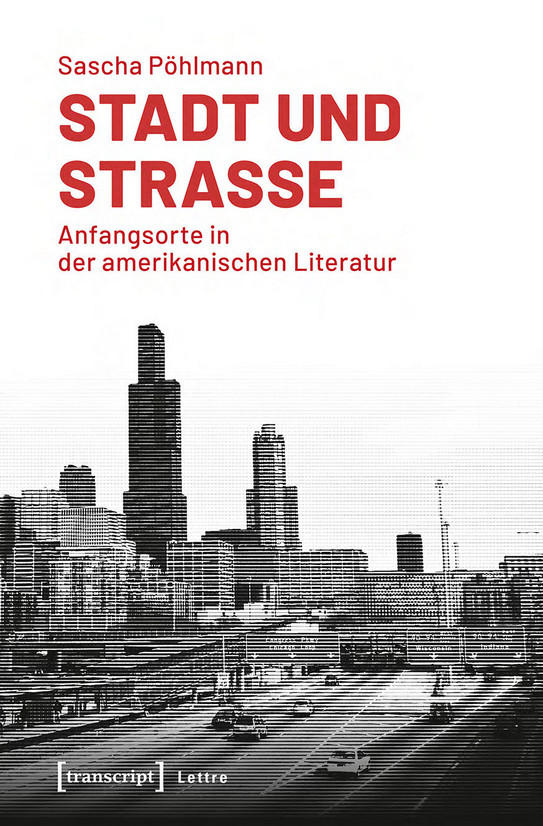
Stadt und Straße – wie und warum werden gerade diese Orte oft zu außergewöhnlichen literarischen Anfangsorten gemacht? Sascha Pöhlmann wendet sich in doppelter Absicht an ein Publikum, das sich für US-amerikanische Literatur (etwa von Walt Whitman, Don DeLillo, Jack Kerouac oder Kathy Acker) interessiert, aber nicht den akademischen Fachdiskurs verfolgt. Erstens will er dieser Leserschaft ein Konzept nahebringen, das zentral für die amerikanische Kulturgeschichte ist: nämlich die Idee des Anfangs. Zweitens will er dadurch eine neue Perspektive auf bekannte Klassiker der amerikanischen Prosa eröffnen und zugleich weniger bekannte, aber nicht minder bedeutsame Texte erschließen.
Future-Founding Poetry: Topographies of Beginnings from Whitman to the Twenty-First Century. Camden House, 2015.
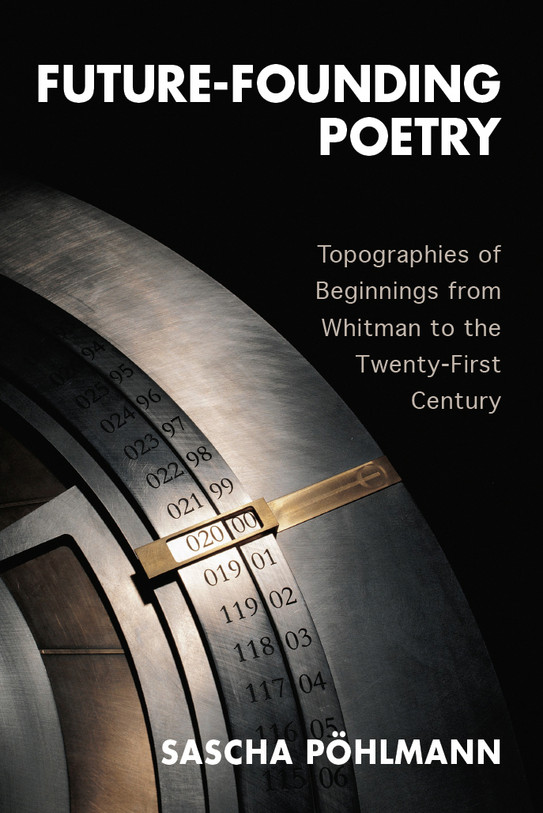
Although issues of futurity have become more and more central to literary and cultural studies in recent years, especially in environmental criticism, no scholarly work has yet addressed the topic of beginnings in American poetry in sufficient scope or detail or with adequate theoretical background. This book is a study of how beginnings are made in American poetry. It borrows Walt Whitman’s term “future-founding” to establish a theory of poetic beginnings that asks how poetry relates to notions of the future and how it imagines, constructs, and influences this future in the present. Furthermore, it seeks to change the way literary scholars think about futurity with regard to American poetry: they most often conceive of it in terms of newness alone, yet a deeper theorization of beginnings must open up new ways of understanding the complexities of this relation. With chapters on Whitman, William Carlos Williams, Langston Hughes, Muriel Rukeyser, Allen Ginsberg, and future-founding poetry after 9/11, this book explains how American poetry makes its beginnings, with what means and to which political and aesthetic ends, and how it addresses fundamental questions about the nature of futurity itself.
Pynchon's Postnational Imagination. Winter, 2010.

Pynchon’s Postnational Imagination is the first monograph to critically analyze Thomas Pynchon’s novels with regard to issues of nations, nationality, national identity, nationalism, and the very idea of the national: nation-ness. It argues that Pynchon’s fiction can best be conceptualized as postnational, that is, as working towards dismantling the hegemony of nation-ness as a metanarrative. The study seeks to establish a critical theory of postnationalism that helps conceptualize this complex literary practice. It combines established theories of nation-ness with recent attempts to think beyond the nation, drawing on the ideas of Renan, Gellner and Anderson as well as Habermas, Albrow, Appadurai, and Hardt and Negri in order to offer a viable postnational theory that is as pertinent to literary studies as to other fields. It presents various postnational strategies, most notably that of parageography, to show in detailed critical readings of Gravity’s Rainbow (1973) and Mason & Dixon (1997) that Pynchon’s novels both exemplify and describe a postnational imagination.
Edited collections
Flyover Fictions: Polarization in U.S.-American Culture, Media, and Politics. University of Nebraska Press, 2025. (with Cornelia Klecker)
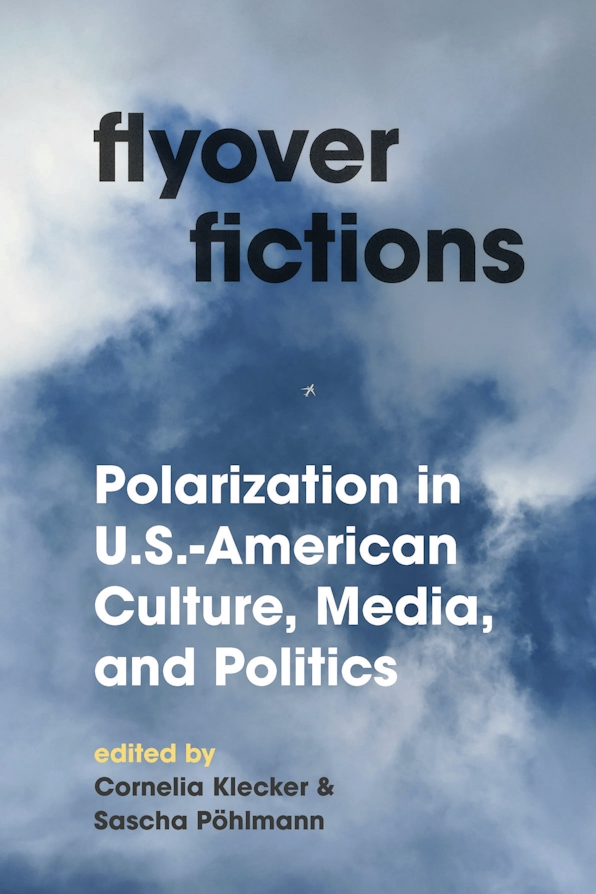
Flyover Fictions critically engages the history and contemporary use of the “flyover country” trope in American culture and repurposes the concept as an abstract tool for cultural studies. The term “flyover” arose in the 1970s with variations—“flyover country,” “flyover states”—mainly used as synonyms for the American Midwest in intranational banter regarding cultural differences from the dominant urban centers of New York City and Los Angeles. In recent years, the trope has shifted away from this playfulness and its traditional geographic reference points to indicate larger political and cultural developments that speak of a deepening polarization in the United States.
Flyover Fictions is an exploration of the trope’s current politicization, historical contexts, and general proliferation of meanings. Instead of resolving the ambiguities inherent in the concept, the volume considers what can be done with these ambiguities, and how precisely their fuzziness might be used to create an analytic tool to describe, understand, and critique processes of cultural hierarchization. The contributors show how flyover fictions may operate in different national contexts and also internationally or transnationally, not only providing a fresh perspective on historical and contemporary American culture but also supplying a conceptual toolbox for broader use.
(Re)Imagining Flyover Fictions, special issue of JAAAS, 2024 (with Cornelia Klecker)

As the title suggests, this special issue explores and reimagines the "flyover" trope. Frequently deployed in discourses of polarization, it can also be an instrument to explain these polarizations, and that is what we are interested here. This issue is a complementary companion piece to a book project: a collection of essays titled Flyover Fictions: Polarization in US-American Culture, Media, and Politics (U of Nebraska P, forthcoming in 2025). Here, we focus on more contemporary aspects and the application (rather than the theorization) of flyover and thus a more practical methodology.
Download the introduction here and access the entire issue here.
The Politics of Transparency in Modern American Fiction: Fear, Secrecy, and Exposure. Camden House, 2024. (with Paula Martín-Salván)
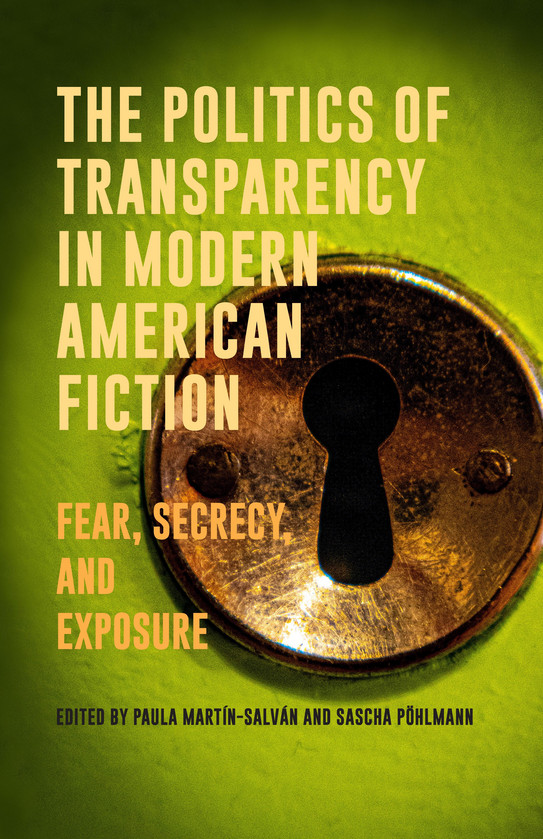
In the twenty-first century, transparency has become an ambiguous buzzword both in the public and the private realms (e.g., Wikileaks and the Snowden affair; social media). This volume takes its cue from the emerging field of transparency studies, recent scholarly work in sociology, political theory, and cultural studies that identifies a hegemonic rhetoric of transparency in public and political life. While scholars in this new field routinely gesture toward literature as the realm where secrecy may be productive, they rarely engage with literature directly, and literary studies itself remains notably absent from their debates. This collection of essays seeks to redress that state of affairs by focusing on literary texts written in an American cultural tradition steeped in the interplay between transparency and exposure, fear and secrecy, security and surveillance, and information and disinformation.
The essays draw on authors ranging from Whitman, James, and Ellison to Pynchon, Morrison, and Eggers to argue that American literature complicates theoretical assumptions about transparency made in other disciplines. They question the field's strong theoretical emphasis on present-day technopolitical practices and discourses as the location of hegemonic discourse on transparency, and instead historicize such phenomena and extend them to discursive spheres that have so far been neglected (such as issues of sexuality and race).
Edited by Paula Martín-Salván and Sascha Pöhlmann. Contributors: Tomasz Basiuk, Jesús Blanco Hidalga, Cristina Chevereșan, Michel Feith, Julián Jiménez Heffernan, Tiina Käkelä, Juan L. Pérez-de-Luque, Umberto Rossi, Jelena Šesnić, Toon Staes, Julia Straub, Alice Sundman.
Americana: Aesthetics, Authenticity, and Performance in US Popular Music. Waxmann, 2024. (with Knut Holtsträter)
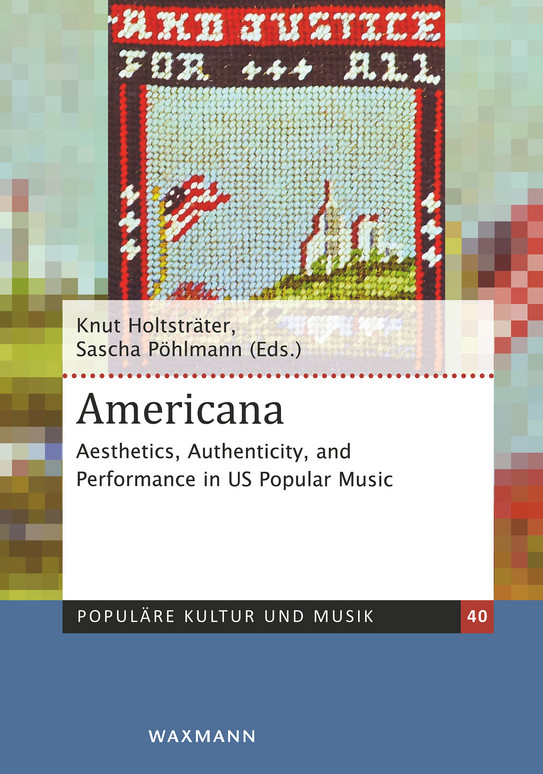
The essay collection Americana poses the basic question of how American music can be described and analyzed as such, as American music. Situated at the intersection between musicology and American Studies, the essays focus on the categories of aesthetics, authenticity, and performance in order to show how popular music is made American—from Alaskan hip hop to German Schlager, from Creedence Clearwater Revival to film scores, from popular opera to U2, from the Rolling Stones to country rap, and from Steve Earle to the Trans Chorus of Los Angeles.
Special issue on Percival Everett, Orbit, 2023 (with Martin Paul Eve).
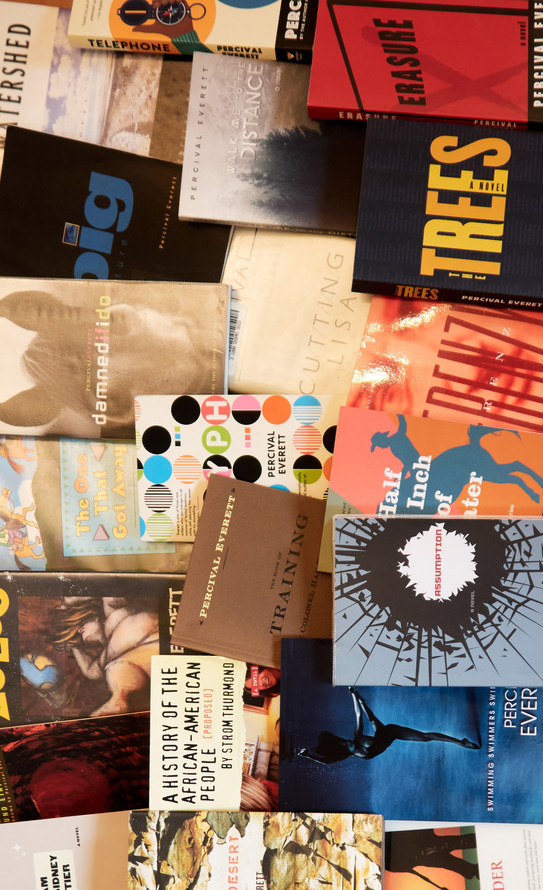
This special issue of Orbit: A Journal of American Literature considers the novels of Percival Everett, one of the most prolific, unique, and multifaceted writers in contemporary American literature. The introduction to the issue initially offers a general overview of his works and then focuses on Dr. No, while the other seven essays address Frenzy, Telephone, The Trees, American Desert, Walk Me to the Distance, Wounded, and Erasure, among many other things.
Special issue on Mark Z. Danielewski's The Familiar, Orbit, 2022.
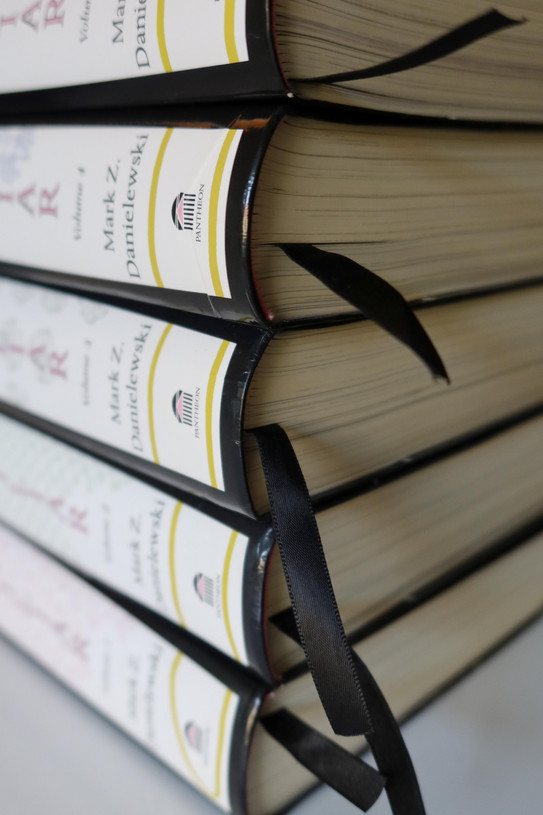
This special issue of Orbit: A Journal of American Literature focuses on Mark Z. Danielewski’s pentalogy The Familiar, perhaps the most remarkable and audacious project in American fiction in the twenty-first century so far. A truly unique blend of various textual, visual, material, and medial features, these novels were published to considerable critical and popular acclaim, although the series was “paused” after its first “season.” The essays in this collection—by Luka Bekavac, Brian Davis, Ian Ezerin, Corey Flack, Aislinn McDougall, Julia Panko, and Burak Sezer—aim to offer a variety of perspectives on The Familiar for academic and non-academic readers alike. The introduction to this special issue has a link to a current bibliography of Danielewski criticism. Finally, the collection ends with an original piece by Mark Z. Danielewski that includes, among other things, a glimpse of Season 2.
Playing the Field: Video Games and American Studies. De Gruyter, 2019. (Paperback, 2021)
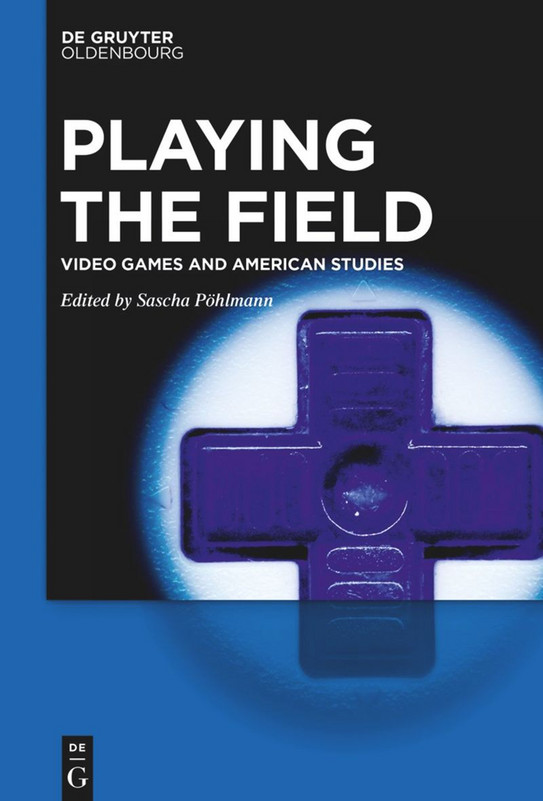
American Studies has only gradually turned its attention to video games in the twenty-first century, even though the medium has grown into a cultural industry that is arguably the most important force in American and global popular culture today. There is an urgent need for a substantial theoretical reflection on how the field and its object of study relate to each other. This anthology, the first of its kind, seeks to address this need by asking a dialectic question: first, how may American Studies apply its highly diverse theoretical and methodological tools to the analysis of video games, and second, how are these theories and methods in turn affected by the games? The eighteen essays offer exemplary approaches to video games from the perspective of American cultural and historical studies as they consider a broad variety of topics: the US-American games industry, Puritan rhetoric, cultural geography, mobility and race, urbanity and space, digital sports, ludic textuality, survival horror and the eighteenth-century novel, gamer culture and neoliberalism, terrorism and agency, algorithm culture, glitches, theme parks, historical guilt, visual art, sonic meaning-making, and nonverbal gameplay.
Download the introduction here.
See www.playingthefield.eu for the larger collaborative research project, other publications and future conferences.
Unpopular Culture. Amsterdam University Press, 2016. (with Martin Lüthe)

This collection includes eighteen essays that introduce the concept of unpopular culture and explore its critical possibilities and ramifications from a large variety of perspectives. Proposing a third term that operates beyond the dichotomy of high culture and mass culture and yet offers a fresh approach to both, these essays address a multitude of different topics that can all be classified as unpopular culture. From David Foster Wallace and Ernest Hemingway to Zane Grey, from Christian Rock and Country to Black Metal, from Steven Seagal to Genesis (Breyer) P-Orridge, from K-pop to The Real Housewives, from natural disasters to 9/11, from thesis hatements to professional sports, these essays find the unpopular across media and genres, and they analyze the politics and the aesthetics of an unpopular culture (and the unpopular in culture) that has not been duly recognized as such by the theories and methods of cultural studies.
America and the Musical Unconscious. Atropos Press, 2015. (with Julius Greve)
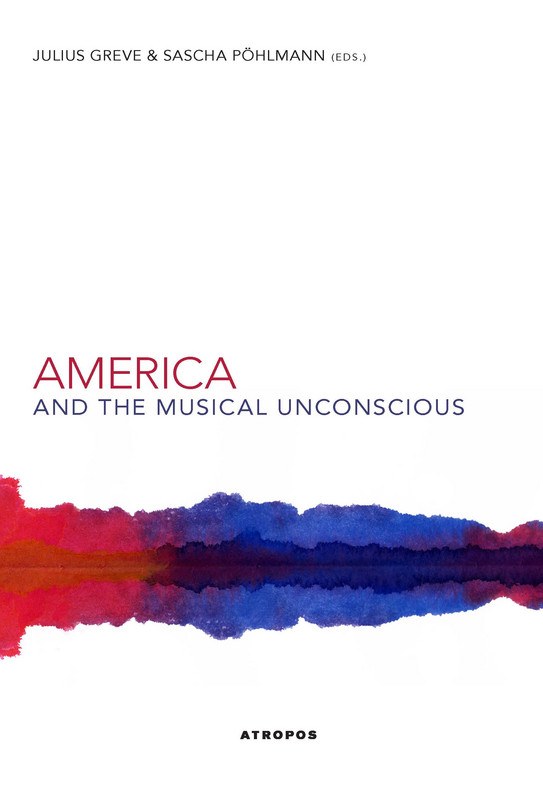
Music occupies a peculiar role in the field of American Studies. It is undoubtedly recognized as an important form of cultural production, yet the field continues to privilege textual and visual forms of art as its objects of examination. The essays collected in this volume seek to adjust this imbalance by placing music center stage while still acknowledging its connections to the fields of literary and visual studies that engage with the specifically American cultural landscape. In doing so, they proffer the concept of the ‘musical unconscious’ as an analytical tool of understanding the complexities of the musical production of meanings in various social, political, and technological contexts, in reference to country, queer punk, jazz, pop, black metal, film music, blues, carnival music, Muzak, hip-hop, experimental electronic music, protest and campaign songs, minimal music, and of course the kazoo.
Electoral Cultures: American Democracy and Choice. Winter, 2015. (with Georgiana Banita)
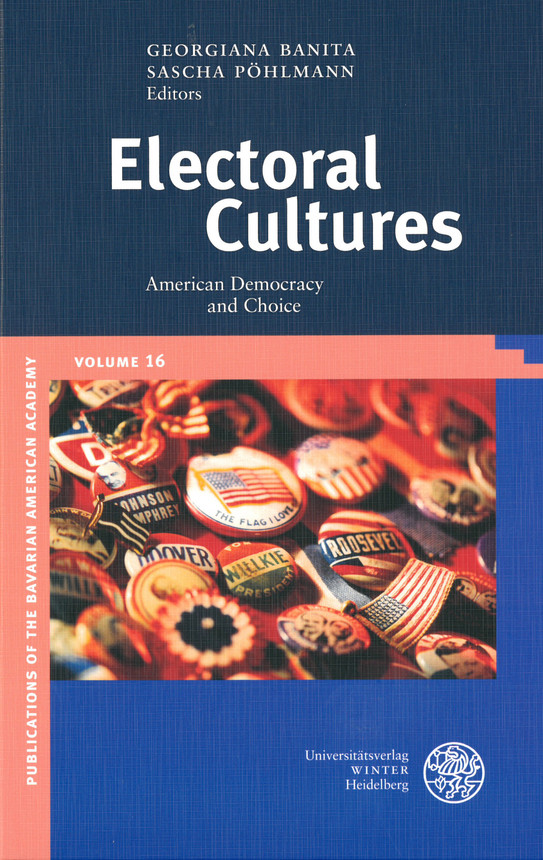
Presidential elections are essential to US culture, shaping the nation’s stability and global influence. This volume is the first to establish an interdisciplinary platform for a broad investigation of election mechanics and legacies. Historians, political scientists, literary scholars, and cultural theorists shed light on the narratives of election successes and failures. Beginning with the struggle for voting rights and extending to current representations of candidates and campaigns, Electoral Cultures examines elections as complex cultural phenomena. Analyzing political processes and personalities from Lincoln to Obama, the chapters query assumptions about democracy in the United States. The resulting survey significantly alters how we perceive the paradoxical American ideals of equality, individualism, and authenticity. In its sweeping scope and rich detail, the book opens up an incisive new scholarly field concerned with US political culture and its place in the world today.
Gründungsorte der Moderne: Von St. Petersburg bis Occupy Wall Street. Wilhelm Fink, 2014. (with Maha El Hissy)

Was ist ein Gründungsort? Wie werden solche Orte gemacht und gepflegt? Was für Geschichten werden mit ihnen erzählbar und für wen? Welche Widerstände oder Widersprüche fordern sie heraus? Der Band präsentiert die Ergebnisse des internationalen Abschlusssymposiums der Forschergruppe »Anfänge (in) der Moderne« an der LMU München. Die Beiträge befassen sich mit fiktiven wie realen Gründungsorten des 19. bis 21. Jahrhunderts. Ob St. Petersburg, Jerusalem, Washington/D.C. und Florenz oder die Künstlerkolonien in der Bretagne, die Inseln der Südsee und die Occupy-Camps oder aber auch Tlön, Wolkenkuckucksheim und der literarische Spaziergang – die Anfänge sind so vielfältig wie die Orte, an denen sie stattfinden. Die Autoren betrachten diese gemeinsame Konstruktion von Anfang und Ort in verschiedenen Medien in Hinblick auf ihre symbolische, politische, historische, kulturelle und ästhetische Bedeutung.
Revolutionary Leaves: The Fiction of Mark Z. Danielewski. Cambridge Scholars Publishing, 2012.
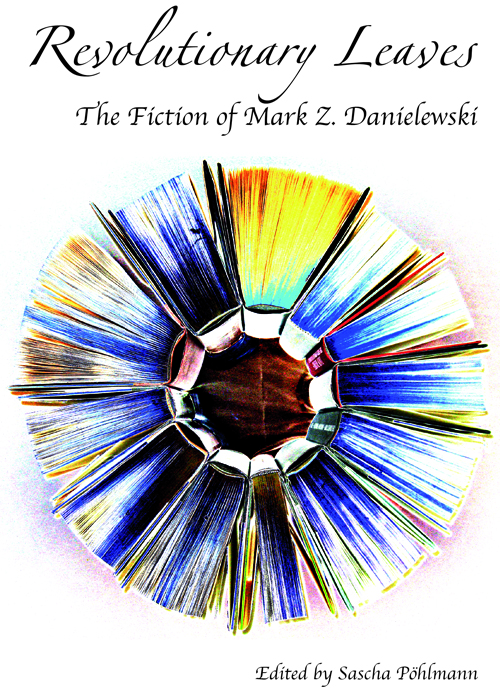
Mark Z. Danielewski is routinely hailed as the most exciting author in contemporary American literature, and he is celebrated by critics and fans alike. Revolutionary Leaves collects essays that have come out of the first academic conference on Danielewski’s fiction that took place in Munich in 2011, which brought together younger and established scholars to discuss his works from a variety of perspectives. Addressing his major works House of Leaves (2000) and Only Revolutions (2006), the texts are as multifaceted as the novels they analyze, and they incorporate ideas of (post)structuralism, modernism, post- and post-postmodernism, philosophy, Marxism, reader-response criticism, mathematics and physics, politics, media studies, science fiction, gothic horror, poetic theory, history, architecture, mythology, and more.
Against the Grain: Reading Pynchon’s Counternarratives. Rodopi, 2010.

Against the Grain: Reading Pynchon’s Counternarratives is the first book that critically addresses Thomas Pynchon’s novel Against the Day, published in 2006. The nineteen essays collected in this volume employ a large variety of approaches to this massive novel and also take it as an opportunity to reevaluate Pynchon’s earlier works, analyzing Against the Day in relation to V., The Crying of Lot 49, Gravity’s Rainbow, Vineland, Mason & Dixon, as well as Pynchon’s short stories and essays. The authors—younger and established scholars from eleven countries—address these works with regard to issues of modernism and postmodernism, politics, popular culture, concepts of space and time, visuality, sexuality, identity, media and communication, philosophy, religion, American and global (literary) history, physics, mathematics, economics, and many more. Their insights are as profound as they are diverse, and all provide fresh views on Pynchon’s fiction that will be useful, fascinating and entertaining for researchers and fans alike.







